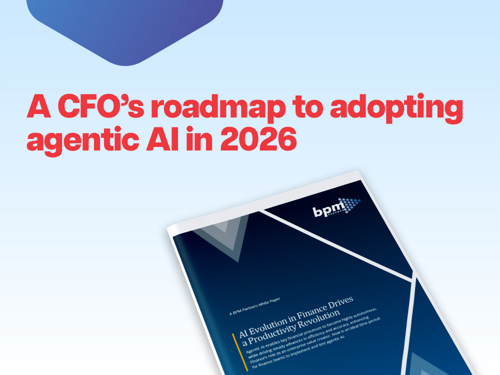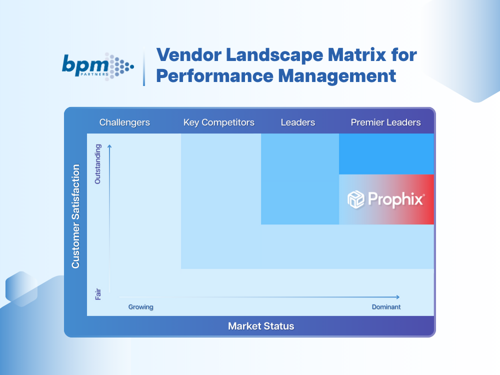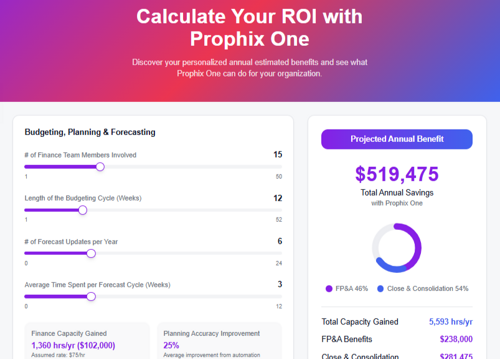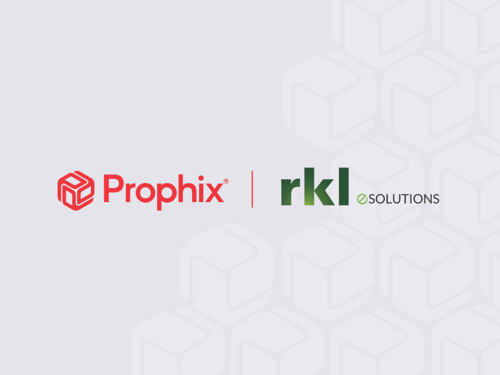Download Analyst Report
A guide to financial compliance regulations for finance teams
Finance leaders must proactively implement regulatory frameworks that address emerging challenges, protect consumers, and enhance their organization’s stability in the market.
December 30, 2024Businesses in the finance sector undergo significant stress due to stringent and evolving financial compliance regulations. These regulations form an intricate system in which risk, innovation, and consumer protection must be balanced with inevitable changes. Finance leaders must proactively implement regulatory frameworks that address emerging challenges, protect consumers, and enhance their organization’s stability in the market.
Financial crises, evolving technology, and market upheavals compel governments to introduce new compliance regulations to restore financial stability and transparency, while improving risk management practices. However, even with these ever-evolving regulations, the finance industry is still vulnerable to non-compliance and malicious actors, with the mean cost of a security breach reaching $5.97 million.
To protect against instability or a breach, finance leaders are increasingly leaning into specialized tooling and automation to decrease the risks created by inefficiencies, human error, and non-compliance.
Before detailing which regulations must be met, it’s important to understand the consequences of failing to reach compliance standards.
What are financial compliance regulations, and how do they affect finance teams?
A financial compliance regulation refers to a predetermined standard, specification, or law relevant to the finance industry. These regulations maintain the integrity of financial markets and protect consumers and businesses against incidents like cyberattacks or fraud. They can cover everything from how financial institutions manage personal data to how financial consolidation is performed, and even which financial instruments can be introduced to different markets.
Why financial compliance regulations matter
Financial compliance regulations protect consumers and investors while maintaining the integrity of broader financial markets. Regulations safeguard consumers from unethical practices and ensure that financial entities remain transparent, which is essential for maintaining trust in financial institutions and markets.
Meeting compliance standards also prevents financial crimes and attacks, which can have significant economic consequences. Noncompliance can result in fines and legal action, severely damaging a business’s reputation.
Differences between financial compliance management and regulations
Financial regulations specifically refer to aligning with external legal mandates, rules, and laws. Financial compliance management refers to the internal structures and procedures that must meet predetermined business requirements based on their jurisdiction. A Financial Performance Platform like Prophix One can help businesses tackle both.
Global perspectives on financial compliance regulations
From an international perspective, there are some similarities in compliance regulations between the world’s major economies. For example, an increased focus on data protection and stringent anti-money laundering measures is present worldwide. Meanwhile, developing economies are slowly adapting to global financial compliance standards and their unique challenges.
In some cases, businesses that span multiple jurisdictions face unique compliance regulation challenges. For example, a financial institution operating in both the U.S. and the EU needs to comply with regulations from both jurisdictions that may have conflicting requirements. In this case, organizations need to implement additional measures to reconcile differences, which can increase operational costs and create vulnerabilities and inefficiencies within their processes.
Confidently streamline disclosure management with Prophix One™.
Financial compliance regulations for finance leaders to observe
1. Company policies/internal controls
The Sarbanes-Oxley Act (SOX) sets up regulations for storing and managing corporate-facing digital finance records. This includes logging, monitoring, and auditing certain activities. SOX audits focus on information security, including managing access controls and regular data backups.
SOX regulations include security and financial provisions and apply to publicly traded companies over a specific size, as well as all accounting firms that audit public companies.
2. Accepted accounting practices
Generally Accepted Accounting Principles (GAAP) are a set of standards and procedures consistently revised and reissued by the Financial Accounting Standards Board (FASB) and the Governmental Accounting Standards Board (GASB). GAAP ensures accuracy, consistency, and transparency for financial reporting across multiple U.S. industries. Public companies and enterprises must follow GAAP when preparing financial statements and documents.
International Financial Reporting Standards (IFRS) are issued by the International Accounting Standards Board (IASB). They’re a set of accounting regulations for financial statements of public businesses and are intended to keep them transparent, consistent, and accessible enough to be easily compared worldwide. IFRS applies to 168 jurisdictions outside of the U.S., including the EU.
3. Local/state/federal laws
The California Consumer Privacy Act (CCPA) empowers Californian consumers by granting certain rights regarding how businesses handle and process their personal data. These include the right to know what information is used, shared, and sold and to delete personal information on file with a covered company.
It also grants them the right to opt out of the sale of personal information, correct incorrect data, and limit the disclosure of sensitive information. Lastly, it gives consumers the right to non-discrimination in services or pricing. The CCPA applies to businesses with more than $25 million in annual revenue, businesses that earn 50% or more of their revenue from selling information, and businesses that process personal data of more than 50,000 people annually.
California Privacy Rights Act (CPRA) is similar to the CCPA, but instead of focusing on individual consumer rights, it includes personal data rights for employees and business-to-business (B2B) personal rights for Californians.
Californian employers were required to implement privacy and data collection protocols by January 1st, 2023, to comply with CPRA regulations. The CPRA gives individuals three new rights, whether they are employees, consumers, or involved in B2B partnerships:
- The right to limit the use of sensitive personal data.
- The right to correct personal data by requesting changes to records.
- The right to opt out of automated decision-making technology.
4. Tax and reporting compliance
Pillar Two of the OECD/G20 Base Erosion and Profit Shifting (BEPS) Project aims to ensure that income is taxed according to the global minimum. As part of the Global Minimum Taxation pillar in the BEPS project, it has several complex mechanisms to ensure these taxes are paid.
The rules are complex and require new forms of finance data for tax departments that they may or may not have access to. These rules and regulations apply to multinational enterprises with a turnover greater than EUR750 million annually and set forth a 15% tax across the board.
5. Industry/regulatory standards
Environmental, Social, and Governance (ESG) Standards measure an organization's social and environmental impact. Although they are usually used in investing, they also apply to suppliers, customers, employees, and the general public.
Many frameworks have been established to help companies with ESG disclosure management. The Global Reporting Initiative (GRI), for example, produces a global framework that regulates approaches to materiality, management and financial reporting, and disclosure for various other ESG-related issues.
6. Data security standards
The General Data Protection Regulation (GDPR) is commonly considered the most stringent data protection regulation in the world. It was created to “harmonize” data privacy laws across EU members, while giving individuals more protection for their data. The GDPR is built around a rigid framework that follows the principles of lawfulness, fairness and transparency, purpose limitation, data minimization, accuracy, storage limitation, integrity and confidentiality, and accountability.
Canada’s Anti-Spam Legislation (CASL) is the country’s new anti-spam law. It applies to all digital messaging, including emails and texts that organizations send in connection with a “commercial activity.” This means that global organizations and Canadian businesses that send Commercial Electronic Messages (CEMs) from, to, or within Canada must obtain consent from the recipients before sending. CASL does not apply to CEMs routed through Canada.
Key requirements for financial compliance regulations
Data protection and privacy
Data protection and privacy ensure that sensitive data is accessible to approved and consenting parties. They also prevent cybercriminals from using data with malicious intent and ensure that organizations comply with regulatory requirements. If thorough and comprehensive policies are not established, an organization may be vulnerable to a data leak, reputation damage, or data loss from a cyber-attack.
Prophix works with organizations to meet their data protection and financial disclosure management requirements, so companies are assured they’re meeting compliance standards.
Cybersecurity
Cybersecurity compliance provides a rigid framework for protecting sensitive customer data, thereby building an entity’s reputation and trust with the public. It signifies that the organization is committed to secure business practices and minimizes the risk of a cyber-attack or data breach. Accounting firms, in particular, have some of the highest-value data on individuals and businesses, and hackers know this, making them more vulnerable to an attack.
A Financial Performance Platform like Prophix One supports companies looking to build and maintain robust cybersecurity.
Customer due diligence
Customer Due Diligence (CDD) involves verifying a customer's identity, assessing their level of risk, and continuously reviewing and monitoring their transactions. It aids businesses in limiting fraud and avoiding fines and bad publicity. CDD is an integral process for financial institutions looking to prevent money laundering and other finance-related crimes. Prophix One is a great platform for helping businesses meet CDD requirements.
Internal controls and auditing
If an organization is without internal controls and doesn’t perform regular audits, it can’t reassure investors and regulators that financial data is secure and accurate. Every practice for reducing risk traces back to audits and internal controls.
Quality controls ensure goals and objectives are accomplished and provide routine financial reporting for management decisions. They also reduce the risk of public scandal and ensure no legal action is taken by helping the company meet compliance standards. Implementing a Financial Performance Platform like Prophix One is a great way to get started with internal controls, reporting, and auditing.
Transaction monitoring
Transaction monitoring prevents and detects money laundering, which usually involves sourcing any money suspiciously obtained. It thoroughly analyzes transaction data and detects activities like credit card fraud and wire transfer scams. Prophix One, a Financial Performance Platform, can help organizations comply with these requirements by recognizing patterns and trends in transactions that indicate illegal activities and flagging them for review.
Risk assessment and management
Risk assessment is integral to a business’s overall risk management strategy. It ensures that all parties adhere to predetermined terms and conditions. Risks need to be outlined and analyzed in financial reporting, operations, and compliance. Assessing these risks enables businesses to better achieve their goals by determining how to anticipate and manage pitfalls.
Prophix One, a Financial Performance Platform, handles financial risk assessment and management so companies can feel assured they’re building a safe and low-risk strategy.
Stay in check with financial compliance regulations with Prophix One™.
Financial compliance regulations don’t need to be the headache they’ve been in the past. By understanding the regulations that finance leaders must observe, including GDPR, SOX, GAAP, and CCPA, you’re well set up to meet compliance standards.
It’s also important to consider the requirements for each regulation like cybersecurity, customer due diligence, and transaction monitoring. Failure to comply could result in fines, legal action, and damage to your company’s reputation.
With Prophix One, a Financial Performance Platform, meeting financial compliance regulations is easy. We offer a comprehensive suite of solutions for your team to explore, tailored to support your business’ finance needs.
Take the stress out of compliance—see how Prophix One streamlines your finance processes.





